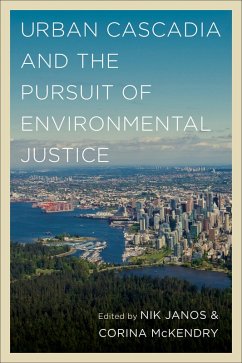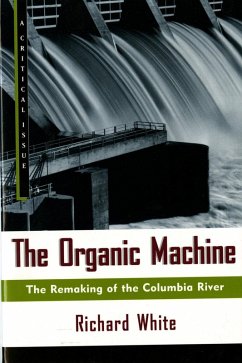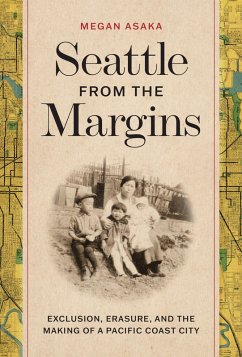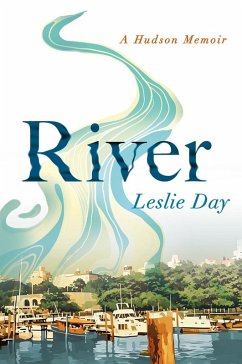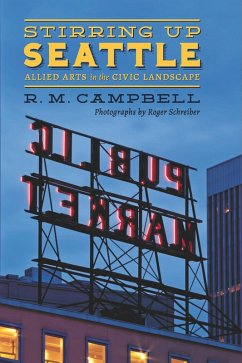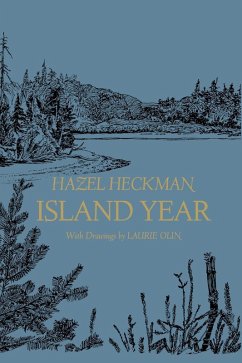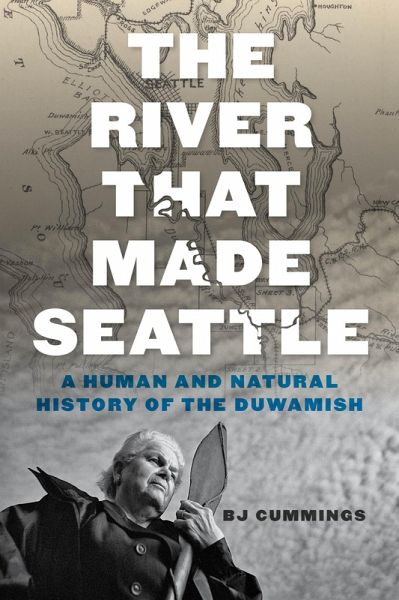
The River That Made Seattle (eBook, ePUB)
A Human and Natural History of the Duwamish

PAYBACK Punkte
8 °P sammeln!
Restores the river to its central place in the city's historyWith bountiful salmon and fertile plains, the Duwamish River has drawn people to its shores over the centuries for trading, transport, and sustenance. Chief Se'alth and his allies fished and lived in villages here and white settlers established their first settlements nearby. Industrialists later straightened the river's natural turns and built factories on its banks, floating in raw materials and shipping out airplane parts, cement, and steel. Unfortunately, the very utility of the river has been its undoing, as decades of dumping l...
Restores the river to its central place in the city's history
With bountiful salmon and fertile plains, the Duwamish River has drawn people to its shores over the centuries for trading, transport, and sustenance. Chief Se'alth and his allies fished and lived in villages here and white settlers established their first settlements nearby. Industrialists later straightened the river's natural turns and built factories on its banks, floating in raw materials and shipping out airplane parts, cement, and steel. Unfortunately, the very utility of the river has been its undoing, as decades of dumping led to the river being declared a Superfund cleanup site.
Using previously unpublished accounts by Indigenous people and settlers, BJ Cummings's compelling narrative restores the Duwamish River to its central place in Seattle and Pacific Northwest history. Writing from the perspective of environmental justiceand herself a key figure in river restoration effortsCummings vividly portrays the people and conflicts that shaped the region's culture and natural environment. She conducted research with members of the Duwamish Tribe, with whom she has long worked as an advocate. Cummings shares the river's story as a call for action in aligning decisions about the river and its future with values of collaboration, respect, and justice.
With bountiful salmon and fertile plains, the Duwamish River has drawn people to its shores over the centuries for trading, transport, and sustenance. Chief Se'alth and his allies fished and lived in villages here and white settlers established their first settlements nearby. Industrialists later straightened the river's natural turns and built factories on its banks, floating in raw materials and shipping out airplane parts, cement, and steel. Unfortunately, the very utility of the river has been its undoing, as decades of dumping led to the river being declared a Superfund cleanup site.
Using previously unpublished accounts by Indigenous people and settlers, BJ Cummings's compelling narrative restores the Duwamish River to its central place in Seattle and Pacific Northwest history. Writing from the perspective of environmental justiceand herself a key figure in river restoration effortsCummings vividly portrays the people and conflicts that shaped the region's culture and natural environment. She conducted research with members of the Duwamish Tribe, with whom she has long worked as an advocate. Cummings shares the river's story as a call for action in aligning decisions about the river and its future with values of collaboration, respect, and justice.
Dieser Download kann aus rechtlichen Gründen nur mit Rechnungsadresse in A, D ausgeliefert werden.




